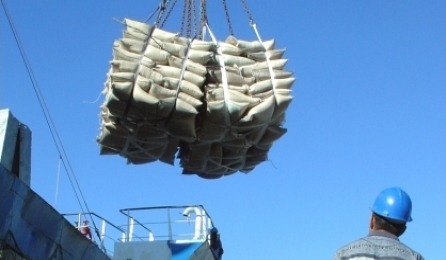São Paulo – Exports from Brazil to the Arab League reached a record-high revenue of USD 17.74 billion in 2022, up 23.06% from a year earlier, the best result in the time series started in 1989.
According to figures compiled by the Market Intelligence department of the Arab Brazilian Chamber of Commerce (ABCC), exports from Brazil to the bloc of 22 Arab countries in the Middle East and North Africa saw a higher prevalence of agribusiness goods. The sector accounted for 70.87% of the income generated over the year, or USD 12.57 billion, up 40.74% from a year earlier.
The leading export to the region in 2022 was sugar at USD 3.44 billion, up 24.73% from a year earlier, followed by poultry products at USD 3.16 billion, up 30.58%, iron ore at USD 2.91 billion, down 24.03%, maize at USD 2.01 billion, up 92.12%, soybean at USD 1.11 billion, up 75.53%, and beef products at USD 1.04 billion, up 13.55%.
Top destinations were the United Arab Emirates, which imported USD 3.26 billion worth of goods in 2022, up 40.09% from 2021. Second came Saudi Arabia at USD 2.92 billion, up 41.26%, followed by Egypt at USD 2.84 billion, up 41.2%, Algeria at USD 1.92 billion, up 26.35%, Bahrain at USD 1.41 billion, down 25.72%, Morocco at USD 1.07 billion, up 88.82%, Oman at USD 1.04 billion, down 32.68%, and Qatar at USD 614.63 million, up 54.2% from 2021.
It is noteworthy that Arab sales to Brazil increased in 2022 to USD 15.04 billion, up 53.37% from 2021. Last year’s total trade between Brazil and the Arab League states reached the unprecedent figure of USD 32.78 billion, with a surplus of USD 2.71 billion on the Brazilian side.
Agricultural products
Agricultural goods were sold for average prices 14.40% higher than in 2021. The analysis considers values and volumes recorded by the approximately 190 SH4 positions (product categories) sent from Brazil to the Arab League, particularly when leading exports are analyzed.
Of the fifteen best-selling goods, coffee is the one that posted the highest growth. The commodity was sold in the Arab League for USD 3,962.57 a tonne, up 88.10% from a year earlier. Maize was sold for USD 273.96 a tonne, up 36.46% from 2021. Poultry posted a 26.23% increase in prices to USD 2,171.96 a tonne.
Read more:
According to ABCC secretary-general Tamer Mansour, the rise in average prices results from the stronger demand for food in the region and the inflationary pressure ushered in by the pandemic and the war in Ukraine, which has impacted raw material, fuel and logistics costs, including in Brazilian agricultural chains.
“The conflict also caused a restriction in the global supply of cereals, particularly maize and wheat. Consequently the Arab countries have searched these and other products from suppliers with goods available, thus leading to the rise in prices above the inflation rate [of 5.79%, according to government statistics agency IBGE], with profits also favored by the lower real exchange rate,” Mansour said.
The secretary-general believes the early COVID-19 vaccination in the Gulf favored the resumption of stopover tourism, boosted by Formula 1 races across the region, Expo 2020 Dubai (from 2021 to 2022), the Club World Cup and the resumption of the Muslim pilgrimages, which are usually events that demand more food.
The FIFA World Cup in Qatar also helped. By attracting 1 million football fans to the host and neighboring countries, the tournament boosted Brazilian food sales, particularly beef and poultry in the months leading up to the event held in November and December.
From January to October, poultry sales to the Gulf Cooperation Council (a union comprising Bahrain, Kuwait, Oman, Qatar, Saudi Arabia, and the United Arab Emirates) grew by 37.14% from a year earlier. Beef revenues grew by 30.87%.
The executive believes that food exports are bound to maintain a rapid pace in the first months of 2023 due to the preparation for Ramadan, the holy month when Muslins fast from dawn to sunset. The date varies from one year to another, according to the Islamic lunar calendar, and in 2023 it is set to run from March 22 to April 20.
“The Arab countries will remain major buyers of Brazilian foodstuffs. But it’s noteworthy that they’ve invested heavily to reduce their dependence on foreign food. Our mission is to find room in value-added categories as well,” Mansour finishes.
Translated by Guilherme Miranda




